Questões de Língua Inglesa
Lista completa de Questões de Língua Inglesa para resolução totalmente grátis. Selecione os assuntos no filtro de questões e comece a resolver exercícios.
Língua Inglesa - Interpretação de Texto - Centro de Seleção e de Promoção de Eventos UnB (CESPE) - 2014
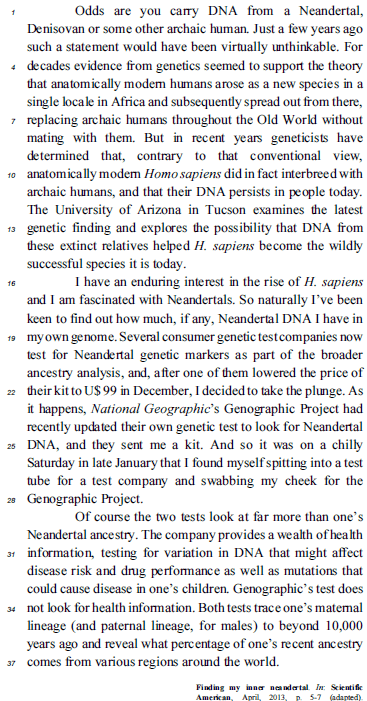
Judge the items that follow based on the text above.
The fragment in recent years (l.8) is chronologically connected with a few years ago (l.2).- C. Certo
- E. Errado
Levando em consideração as diferentes formas de se referir a ações no futuro, analise os itens seguintes:
I. Claire is working at the library on Friday morning.
II. When I retire, I am going to go back to Liverpool to live.
III. The telephone is ringing, but I wont answer it.
IV. James and Sarah are working two jobs to afford a private school for their children.
O emprego dos termos em destaque está CORRETO apenas em
- A. I.
- B. III e IV.
- C. I, II e III.
- D. I, II, III e IV.
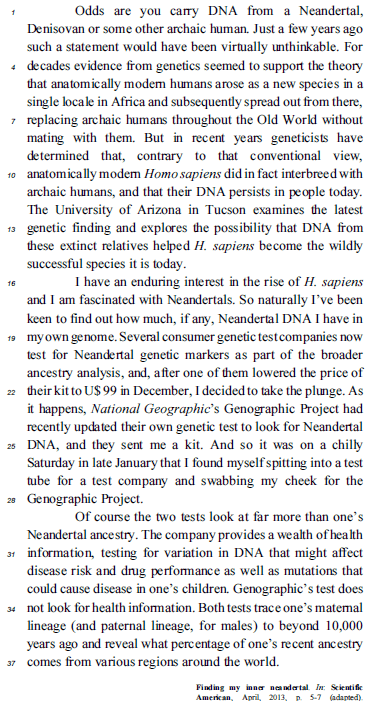
Judge the items that follow based on the text above.
The verb form did in the fragment Homo sapiens did in fact interbreed with archaic humans (l.10 and 11) was used to express an indirect question.- C. Certo
- E. Errado
 De acordo com o texto acima, as expressões destacadas for, every once in a while e yet podem ser substituídas, sem prejuízo de sentido, respectivamente, por
De acordo com o texto acima, as expressões destacadas for, every once in a while e yet podem ser substituídas, sem prejuízo de sentido, respectivamente, por
- A. because, sometimes, but.
- B. of, everytime, however.
- C. so, then, despite.
- D. to, sometimes, however.
Língua Inglesa - Interpretação de Texto - Centro de Seleção e de Promoção de Eventos UnB (CESPE) - 2014
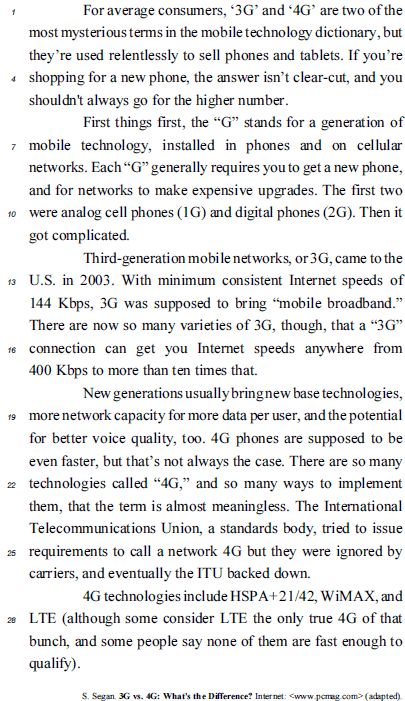
Based on the text, judge the following items.
The expression almost meaningless (l.23) implies that it is not easy to decide what the term 4G represents.- C. Certo
- E. Errado
Língua Inglesa - Interpretação de Texto - Centro de Seleção e de Promoção de Eventos UnB (CESPE) - 2014
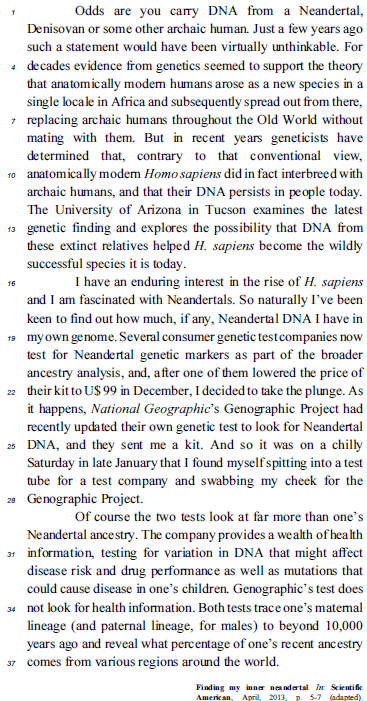
Judge the items that follow based on the text above.
The word So (l.17) provides a linking between two ideas and it means because of this.- C. Certo
- E. Errado
Leia o diálogo abaixo:.
Douglas: Its good to have you here, cousin! Would you like some wine? Claudia: Sure. Douglas, remember when we were kids and we used to visit grandma every Sunday for lunch? Douglas: Yes. We would spend the whole day playing in the backyard! Too bad we cant turn back time Claudia: Youre right I guess I would have spent more time with her. She used to take such good care of us. She would make us those delicious chocolate chip cookies, then she would buy us all Christmas presents.!
She has always enjoyed being around her grandchildren!
Douglas: Yeah If I had grandchildren, I would be exactly like she was to us.
Claudia: So would I! I would rather be like her than being a lonely old lady.
De acordo com o diálogo acima, nas expressões destacadas, o verbo modal would é empregado para indicar, respectivamente,
- A. interesse; condição passada; hábito passado; hipótese; preferência.
- B. interesse; hábito passado; condição; situação futura; habilidade passada.
- C. preferência; fato passado; hipótese; planos futuros; interesse.
- D. preferência; hipótese passada; hipótese; interesse; condição futura.
Língua Inglesa - Interpretação de Texto - Centro de Seleção e de Promoção de Eventos UnB (CESPE) - 2014

Based on the text, judge the following items.
The criteria established by International Telecommunications Union were accepted by the 4G companies.- C. Certo
- E. Errado
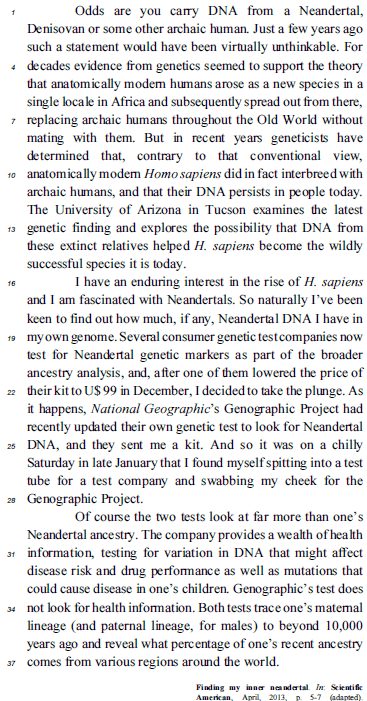
Judge the items that follow based on the text above.
if any (l.18) refers to the possibility that there is no Neandertal DNA in the authors genome at all.- C. Certo
- E. Errado
 De acordo com o texto acima, o painel convocado pela Organização Mundial de Saúde tem por objetivo discutir sobre
De acordo com o texto acima, o painel convocado pela Organização Mundial de Saúde tem por objetivo discutir sobre
- A. a ética do emprego de drogas não registradas no combate ao vírus.
- B. a ética empregada dentro dos laboratórios médicos no combate ao vírus.
- C. as medidas de não propagação da doença via setor aéreo para o continente africano.
- D. os índices de mortalidade causados pelo vírus no continente africano.


